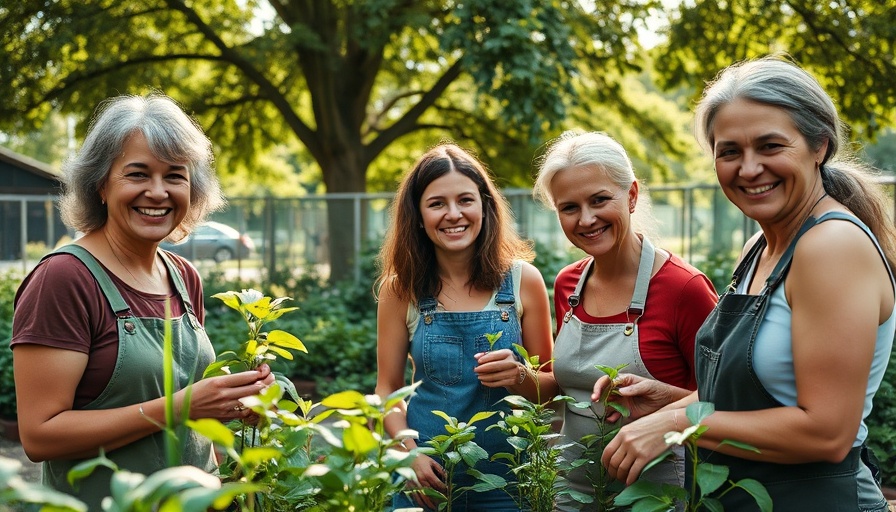
Growing Your Own Fresh Food: A Community Anchor
The recent trend of home gardening is reshaping urban lifestyles, offering not only personal health benefits but also a sustainable connection to the community. In Tualatin, Oregon, initiatives like Neighbors Nourishing Communities (NNC) perfectly exemplify this movement. The NNC program encourages residents to cultivate their own fruits and vegetables while aiding families facing food insecurity—effectively merging personal wellness with community service.
Why Gardening Matters: Environmental Benefits
Choosing to garden isn't just a personal choice; it's an environmental statement. Cultivating our own food significantly supports the planet by reducing the carbon emissions linked to transporting store-bought produce. Traditional agriculture often involves pesticides and harmful chemicals that hurt local ecosystems. However, homegrown food can thrive without these additives, fostering healthier soil and promoting biodiversity, particularly benefiting pollinators such as bees and butterflies. By joining initiatives like NNC, gardeners contribute to ecological health while enjoying the satisfaction of nurturing their own plants.
Health is Wealth: Physical and Mental Gains
Beyond environmental advantages, growing food is a vital exercise for both body and mind. Gardening acts as a form of low-impact physical activity, merging movement with relaxation. Engaging in tasks such as digging, weeding, and planting not only boosts physical fitness but also combats the rising stress levels many experience in today’s fast-paced society. Research indicates that spending time in green spaces can decrease anxiety, improve mood, and enhance overall well-being. For families with children, gardening serves as both an educational tool and a fun outdoor activity that strengthens familial bonds and equips kids with vital life skills
A Sense of Community: Collaboration as a Reward
By participating in NNC, gardeners have the unique opportunity to merge their passion for growing food with community responsibility. With many families in Tualatin struggling due to inflation and food costs, donating a portion of homegrown produce (20%) to local food pantries deepens the impact. This model fosters a sense of connection among neighbors, encouraging the sharing of resources and skills, while realizing the greater goal of nourishing the community.
Accessibility: From Novices to Experts
The beauty of gardening initiatives like those led by NNC lies in their inclusivity. You don’t need to be an experienced gardener or possess extensive land to participate. Even small spaces can yield meaningful harvests. For example, last season, a new participant, Feather, managed to donate over 200 pounds of easy-to-grow crops such as tomatoes and cucumbers from her community plot. Whether it’s your backyard, a community garden, or even a shared office space, there's always an opportunity to transform a small area into a flourishing garden.
Taking Action: Start Your Gardening Journey Today
If you’re inspired to plunge into gardening, why not start today? Register with Neighbors Nourishing Communities by visiting www.neighborsnc.org to gain access to free seeds, planting supports, and invaluable gardening advice. This simple act of contributing some of your harvest can uplift fellow community members while improving your personal health.
Conclusion: The Future of Community Gardening
The practices surrounding urban home gardening align with a broader vision of resilience and sustainability. Programs like NNC not only highlight the joys of cultivating one’s food but also illuminate the potential for collective community care. In nourishing ourselves, we can nurture our neighbors, paving the way for a healthier, more connected future. As you implement the tips from this article into your gardening endeavor, remember, every seed you plant not only grows food but also fosters community—a true testament to the rewarding journey of growing fresh, healthy food.
 Add Row
Add Row  Add
Add 




 Add Row
Add Row  Add
Add 

Write A Comment